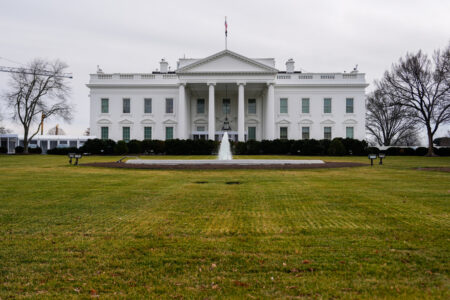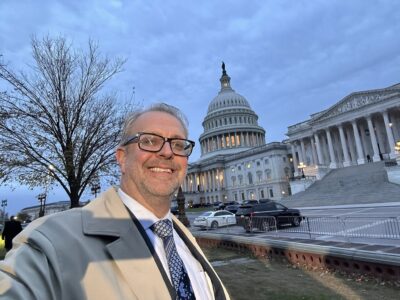Reed Says Faso-Collins Medicaid Amendment Still Alive
Lawmakers in Washington, D.C., began a two-week spring break Friday after spending a month going back and forth on a health care replacement plan.
Government funding is the next key matter in line when they return to the nation’s capital with an April 28 deadline looming. Resuming the debate on health care, however, may not be too far away.
With the issue of health care also comes jostling over who should cover Medicaid expenses that local property taxpayers and counties currently pay — the federal government or Albany.
While plans to change health care failed in March, U.S. Rep. Tom Reed acknowledged it’s only a matter of time before it comes back as insurance costs rise and people back out of the exchanges. Reed, R-Corning, said payment cuts to hospitals that will occur at the end of September could also generate pressure to get something accomplished.
Once talks resume, so will the amendment proposed by U.S. Reps. John Faso and Chris Collins to move $2.3 billion in the Medicaid share paid by counties to the state.
“(The amendment) sits in Obamacare repeal legislation and remains in that legislation, so I think that’s the best vehicle for this to get enacted into law,” Reed said during a Monday conference call. “Health care debate will be a 12-month window. I think going on spring break for two weeks will allow members to decompress and refocus the effort when we return.”
The New York congressional delegation of Democrats and Gov. Andrew Cuomo came back with their own bill in response to the Faso-Collins amendment. Known as the Empire State Equity Act, the Democrats’ bill proposes the federal government handing over $2.3 billion more in funding to the state for its Medicaid program. In return, Cuomo said he would eliminate the Medicaid share that counties pay.
“I’m excited because this is a bill that can actually get things done,” Cuomo said when the proposal was released late March. “Washington has seen a lot false starts, but I think this could put it back on the right track.”
The governor has issued his opposition to the bill by Faso, R-Kinderhook, and Collins, R-Clarence, as he said it would move costs from county to state taxpayers. Cuomo also said there’s no language within their bill that requires counties to reduce property taxes. He also noted that New York contributes as much as $30 billion more in federal taxes than they get back from Washington, D.C.
Reed said he’s pleased to see the governor agrees that lawmakers should be working to alleviate the property tax burden on local taxpayers. As to how Democrats want to see that done, Reed said he’s doesn’t agree with it.
“No cap and no pressure on the State Capitol to reform Medicaid is something I can’t support,” Reed said. “What I’m willing to discuss is the way we change Medicaid to get costs under control.”
In Chautauqua County, Medicaid spending accounts for just over $30 million of the property tax cap. Around 50 cents of every dollar paid in property tax is for Medicaid.
While disagreement remains over how to alleviate the burden, eliminating the county’s Medicaid share could generate an estimated savings of $361 to taxpayers, according to the Governor’s Office.





